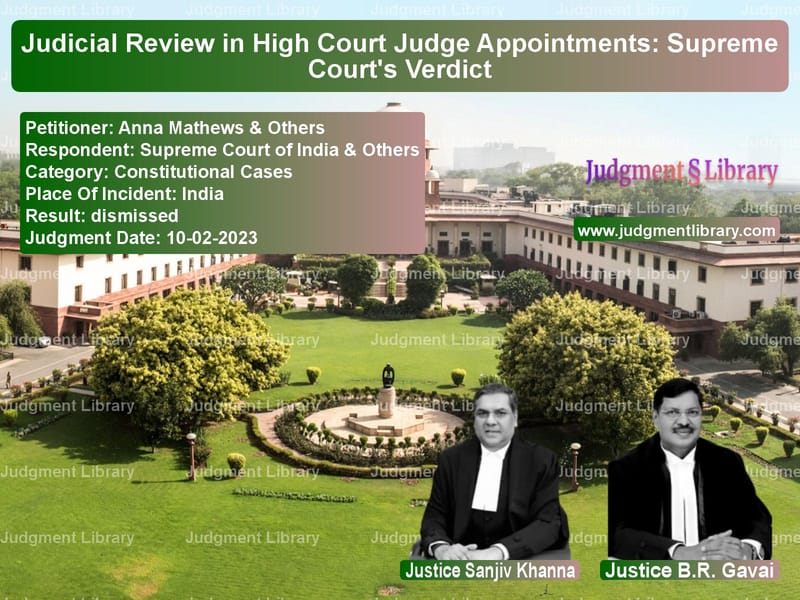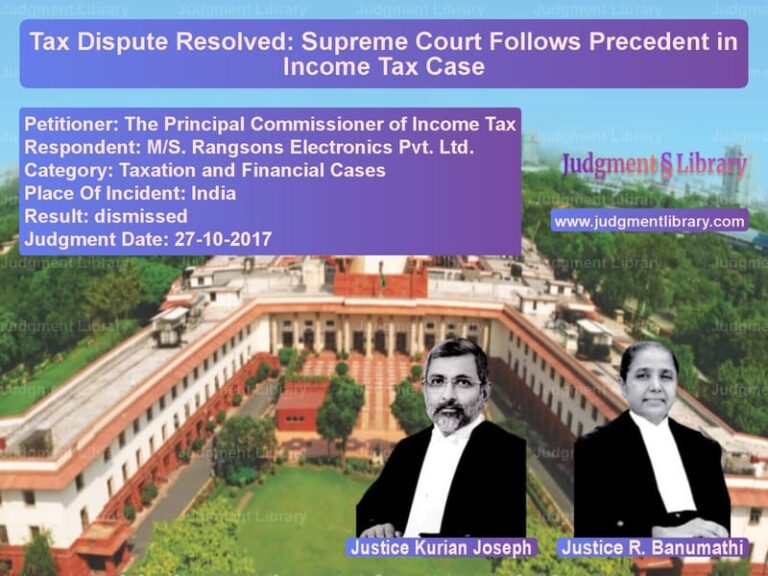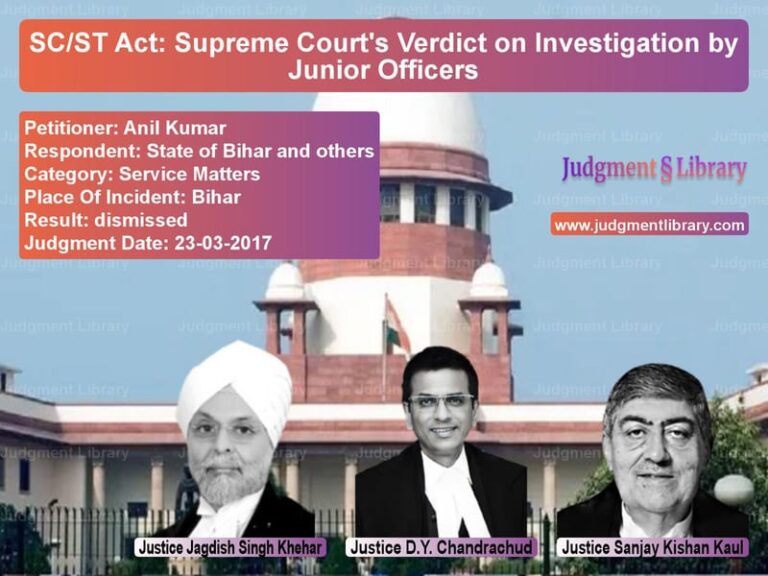Judicial Review in High Court Judge Appointments: Supreme Court’s Verdict
The Supreme Court of India recently delivered a significant judgment in the case of Anna Mathews & Others vs. Supreme Court of India & Others, addressing the scope of judicial review in the appointment of judges to High Courts under Article 217 of the Indian Constitution. The case raised fundamental questions regarding the eligibility and suitability of candidates for judicial appointments and whether the courts can intervene in such matters.
Background of the Case
The petitioners filed a writ challenging the appointment of a judge to a High Court, arguing that the individual lacked the necessary qualifications and was unfit for the position. They contended that the appointment process was flawed and sought judicial intervention to nullify the recommendation made by the Supreme Court Collegium.
The respondents, including the Supreme Court of India, defended the appointment, stating that the process followed was in accordance with the Constitution and judicial precedents. They asserted that the matter of suitability falls outside the scope of judicial review.
Petitioners’ Arguments
- The petitioners argued that judicial appointments must be subject to judicial scrutiny to prevent the appointment of unqualified individuals.
- They contended that the selection process lacked transparency and fairness.
- They claimed that the Collegium failed to consider critical aspects related to the candidate’s background and legal acumen.
- The petitioners relied on constitutional provisions that emphasize the need for an independent and competent judiciary.
Respondents’ Arguments
- The respondents maintained that appointments are an executive function under Article 217(1) and involve a consultative process.
- They cited precedents affirming that the suitability of a candidate is beyond the scope of judicial review.
- They argued that once the Collegium makes a recommendation, the courts have no authority to interfere.
- The respondents emphasized that judicial independence would be compromised if courts began reassessing suitability.
Key Observations by the Supreme Court
The Supreme Court made several important observations:
- Appointment of High Court judges is an executive function of the President, based on recommendations from the Supreme Court Collegium.
- Judicial review is limited to examining the eligibility of a candidate, not their suitability.
- The consultation process for judicial appointments is designed to evaluate integrity, competence, and character.
- The Court cited previous rulings that judicial interference is permissible only in cases of lack of eligibility or lack of effective consultation.
- Suitability assessments, which involve subjective criteria, are beyond the purview of judicial review.
Judgment
The Supreme Court dismissed the writ petition, affirming that:
- Judicial review cannot be used to overturn Collegium recommendations based on personal opinions about a candidate’s merit.
- The petitioners failed to establish a case of ineligibility.
- Allowing judicial review of suitability assessments would create an unwarranted precedent, undermining the judicial appointment process.
Implications of the Judgment
This ruling has far-reaching implications for judicial appointments:
- It reinforces the independence of the judiciary by ensuring that Collegium decisions remain final.
- It limits the scope of judicial review, preventing interference in the merit-based selection of judges.
- It upholds the principle that suitability assessments should be conducted internally by the Collegium.
- The judgment provides clarity on the distinction between eligibility (which can be reviewed) and suitability (which cannot).
Conclusion
The Supreme Court’s decision in this case reaffirms the constitutional framework governing judicial appointments. By limiting the scope of judicial review, the Court has ensured that the appointment process remains within the domain of the executive and the judiciary, preventing unnecessary litigation that could disrupt judicial independence. The judgment serves as a crucial precedent, reinforcing that judicial appointments are primarily an internal matter of the judiciary.
Petitioner Name: Anna Mathews & Others.Respondent Name: Supreme Court of India & Others.Judgment By: Justice Sanjiv Khanna, Justice B.R. Gavai.Place Of Incident: India.Judgment Date: 10-02-2023.
Don’t miss out on the full details! Download the complete judgment in PDF format below and gain valuable insights instantly!
Download Judgment: anna-mathews-&-other-vs-supreme-court-of-ind-supreme-court-of-india-judgment-dated-10-02-2023.pdf
Directly Download Judgment: Directly download this Judgment
See all petitions in Fundamental Rights
See all petitions in Constitution Interpretation
See all petitions in Separation of Powers
See all petitions in Public Interest Litigation
See all petitions in Legislative Powers
See all petitions in Judgment by Sanjiv Khanna
See all petitions in Judgment by B R Gavai
See all petitions in dismissed
See all petitions in supreme court of India judgments February 2023
See all petitions in 2023 judgments
See all posts in Constitutional Cases Category
See all allowed petitions in Constitutional Cases Category
See all Dismissed petitions in Constitutional Cases Category
See all partially allowed petitions in Constitutional Cases Category







